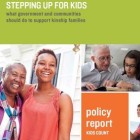
L.A. School Police, District Agree to Rethink Court Citations of Students
|
This story originally appeared on iWatchnews.org by the Center for Public Integrity. In the wake of critical news reports, Los Angeles school police and administrators have agreed to rethink enforcement tactics that have led to thousands of court citations yearly for young students in low-income, mostly minority neighborhoods. The Center for Public Integrity and the Los Angeles-based Labor-Community Strategy Center each performed their own analysis recently of previously unreleased citation records obtained from the Los Angeles Unified School District Police Department, the nation’s largest school police force. The Center found that between 2009 and the end of 2011, Los Angeles school police officers issued more than 33,500 tickets to students 18 and younger, with more than 40 percent handed out to kids 14 and 10 years old. That was an average of about 30 tickets a day.








